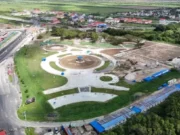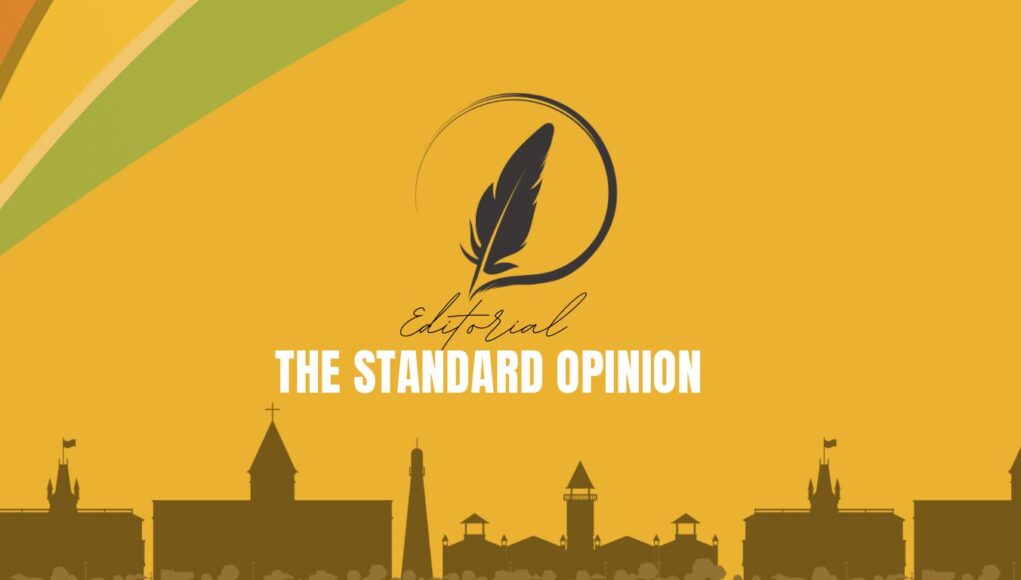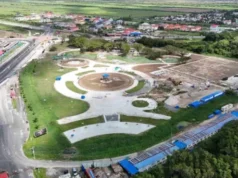By Staff Writer
Standing in line is a hallmark of any functioning society. Remember as a child, lining up before getting into the classroom? That’s the education system subtly indoctrinating the population from young that fairness and order are paramount in keeping our society from descending into anarchy. But this simple act is often undermined by those who view themselves as exceptions to the rule.
Recently, I had the displeasure of witnessing this firsthand—not once, but twice—during visits to two of our country’s busiest institutions: Police Headquarters for a character clearance and a bustling government agency where securing service means queuing at the gate, hours before the office opens. The readers know which office I’m talking about.
In both instances, I noticed a disturbing pattern. Some individuals, unwilling to wait like everyone else, employed various tactics to skip the line. One woman blatantly claimed she had been waiting all along but had stepped away to use the restroom. If that were true, it would mean she had spent nearly three hours in the lavatory—an absurd and almost comedic claim! Others pretended to know someone in authority to slip ahead, while a few simply ignored the queue altogether, walking boldly to the front as if their time was inherently more valuable than anyone else’s.
This mindset isn’t just limited to everyday citizens. Those in positions of power often abuse their status to bypass lines entirely. At one of the agencies I visited, a well-dressed man casually walked past the entire queue and was ushered into the building without so much as a glance at the people he had just overtaken. His body language said it all: rules were for the less privileged, not for him.
But this behaviour isn’t limited to government offices. It’s a symptom of a larger societal issue that’s glaringly evident in all aspects of our society but is more prominent on our roadways.
Like the queue-jumpers at agencies, many of our drivers today are equally disrespectful. We see the same disregard for fairness, the same entitlement, and the same impatience manifest daily in Guyana’s traffic.
Some drivers believe their journey is more urgent, their time more precious, or their position more important. And just as the powerful bypass lines at agencies, they do so on the road, often in full view of traffic police, who rarely intervene.
In fact, the enablers of this disorder are sometimes the very men and women clad in uniforms of hope and justice, whose eyes are averted; blinded by the shiny emblems of power affixed to the chariots of the privileged. Meanwhile, the common man, who has followed rule and law to the letter; whose sacrifice of leaving home early, depriving himself of the comfort of his bed and the embrace of his wife and children, just to arrive early, is still unworthy to a rightful place in line.
This is not just an attack on those committed to fairness, but a mental assault on the punctual. As one La Grange, West Bank Demerara driver once asked a police rank at the Demerara Harbour Bridge, “Why punish the courteous for the discourteous?” when the very cop allowed a well-known businessman to “bore” in front of the line.
Addressing these issues requires more than just stricter enforcement of rules. It demands a cultural shift—a rethinking of our attitudes toward fairness, patience, and accountability.
At government agencies, this might mean implementing systems that reduce the opportunities for queue-jumping, such as numbered tickets or appointment-based services.
On the roads, it means enforcing traffic laws consistently and holding all drivers accountable, regardless of their status or connections.
But perhaps most importantly, it means setting a better example, particularly for those in positions of power. When those in positions of power respect the rules, they send a powerful message that fairness and accountability matter. Conversely, when they flout the rules, they normalize the very behaviours that undermine society.
The next time you’re tempted to skip a line or cut through traffic, consider the message it sends—not just to others, but to yourself. Are you contributing to a culture of fairness and respect, or are you reinforcing the very problems of which you complain?
The lines we stand in and the roads we drive on are microcosms of our society. They show us who we are and what we value. If one can risk their life and that of others to get ahead in a traffic line, imagine what he/she is willing to do to get ahead in life.
If we want to see change, we must start here—by waiting our turn, following the rules, and respecting each other. If the school children can do it, then we as adults can too.













